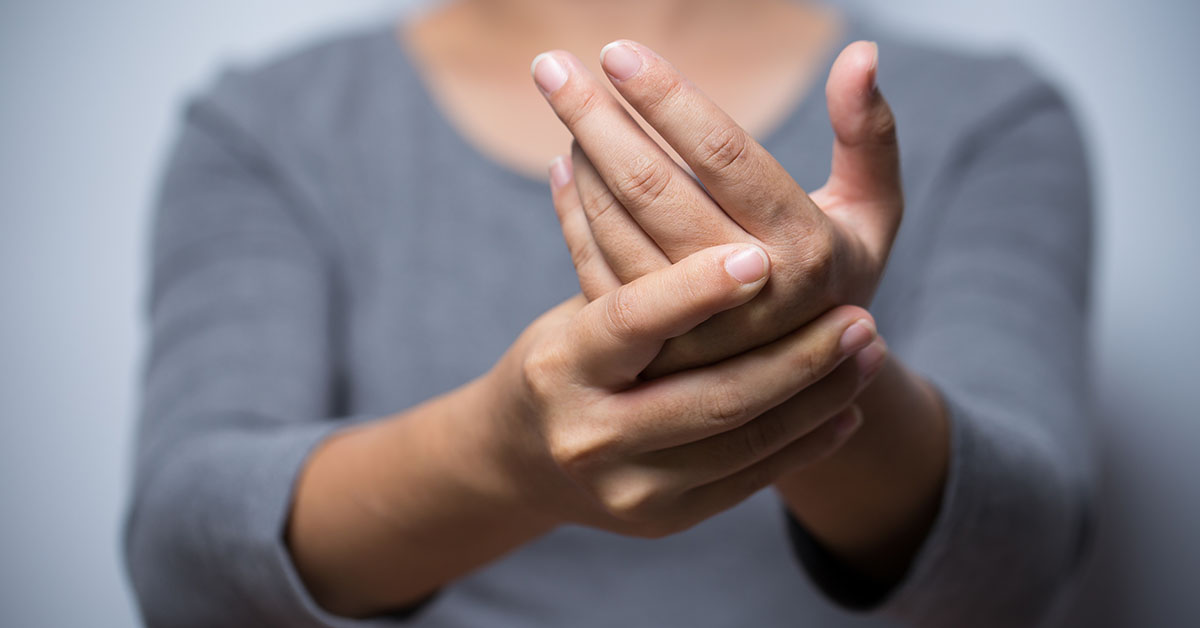
Coping With Peripheral Neuropathy From Cancer
-
Peripheral neuropathy can be a common—and often long-lasting—side effect of a cancer or its treatment. For now, there’s no known way to cure or prevent it. But there are lots of options for managing it, according to Dylan R. Sherry, MD, a physician within the Supportive Oncology and Palliative Care Program at Fox Chase Cancer Center.
Why neuropathy happens
Peripheral neuropathy occurs when nerves outside the brain or spinal cord become damaged. In people with cancer, that can be the result of chemotherapy—especially chemotherapy used to treat gastrointestinal cancers, breast cancer, and multiple myeloma, Sherry said. The higher the dose and longer the therapy, the higher the risk that the drug could affect a patient’s nerves.
Chemo isn’t the only culprit, though. Radiation therapy and surgery can damage nerves too, sometimes with effects only showing up years later. In other cases, a tumor itself could be pressing or growing on a nerve, stopping the nerve from working like it should.
Peripheral neuropathy is marked by unusual or painful sensations like tingling, burning, numbness, weakness, decreased ability to feel hot and cold temperatures, or cramping—usually in the hands or feet. “People will often describe it as walking on pebbles or sand, or wearing gloves all the time,” Sherry said.
But it can rear its head in other ways too. Peripheral neuropathy can affect motor nerves, making it harder to walk, stay balanced, or do everyday activities like button a shirt. It can also impact bodily functions, such as sweating or urination.
Feeling your best
Neuropathy due to chemotherapy can clear up on its own over time; but, if a person is having symptoms, treatments don’t usually make symptoms disappear altogether. “The goal is to help people be more functional,” Sherry said. That starts with telling your oncologist about your symptoms and how they’re affecting your daily life.
In some cases, over-the-counter pain medications or increasing your intake of certain vitamins that affect nerve function, such as B vitamins, is enough to make a difference. Working with a physical or occupational therapist can also help you learn how to move in ways that cause less pain.
There are other options when those don’t work. If chemo is causing the problem, your oncologist might try lowering your dose or switching your chemotherapy. They may also recommend prescription painkillers or other drugs that can relieve nerve pain, such as steroids, lidocaine patches or creams, antidepressants, antiseizure drugs, or even medical marijuana.
Finding the best approach might not happen overnight. “There’s a lot of trial and error involved,” Sherry said. And knowing if some of the drugs are working can take a few weeks.”
Staying safe
Altered sensation in your hands and feet from neuropathy can set the stage for injuries. But taking a few extra precautions can help you stay protected.
- Scan your environment for tripping hazards (like bunched-up rugs or toys on the floor) and use bathmats in the shower or tub.
- Keep your hands and feet safe by wearing oven mitts in the kitchen and having others check the temperature of water to make sure it’s not too hot. Always wear shoes, and dress warmly in the winter.
- Check your hands, arms, legs, and feet for scrapes and scratches daily since you might not feel them.
Finally, take steps to keep your nerves as healthy as they can be. Avoid drinking alcohol, since excessive alcohol consumption can worsen nerve function. And if you have a coexisting condition that puts you at risk for further nerve damage (e.g., diabetes or hypothyroidism), make sure it’s well controlled.
If you are experiencing peripheral neuropathy, let your oncologist know. They will be able to help you with next steps and returning to feeling your best. You do not need to suffer through it. There are options out there that can help.
